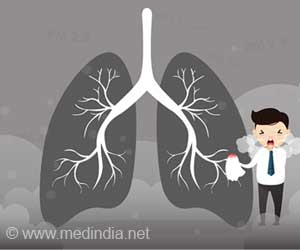Former President Trump's WHO withdrawal raises concerns about global health collaboration.
- Trump's move to withdraw from WHO cited dissatisfaction with pandemic responses
- Experts warn of reduced U.S. influence in global health initiatives
- WHO’s collaborative efforts remain crucial for combating worldwide health crises
Withdrawing The United States From The World Health Organization
Go to source).
A lack of U.S. support for WHO could limit global disease outbreak responses. #globalhealth #medindia’
Withdrawal from WHO: A Controversial Move
On January 20 Trump executed a directive for the United States to depart from the WHO because he was dissatisfied with their COVID-19 pandemic management and perceived political preferences. The president pointed out America's unequal financial support compared to nations including China, while questioning the effectiveness of worldwide actions taken by the WHO.Many health experts maintain that the World Health Organization provides essential global health functions through the distribution of vaccines and pandemic response, as well as medical treatment protocols. Dr. Monica Gandhi at the University of California, San Francisco, stresses that assessing the pandemic control within separate nations requires recognition of their multifaceted operational factors.
Why WHO Matters
Through its crucial efforts, the WHO confronts worldwide health emergencies by addressing infectious diseases among others, such as tuberculosis and malaria, and coordinating emergency response actions. Historically, the United States has remained one of WHO's biggest financial backers while using its clout to shape global health agendas and back life-saving programs.Infectious disease expert Dr. William Schaffner from Vanderbilt University emphasized how health remains boundless across international boundaries. He stressed that viruses do not abide by borders, highlighting how WHO support benefits both developing nations and US citizens by promoting international health cooperation.
Breaking ties with the WHO would separate the United States from vital health cooperation, which would block access to vital disease information while making the U.S. less influential in global health systems management.
Impact on Vulnerable Nations
Developing nations will experience serious negative consequences because they rely on WHO funding to run critical health programs. Developing nations depend on international partnerships to address their public health challenges, which include HIV/AIDS care and childhood immunization programs.Expert predictions show that the U.S. withdrawal from global health leadership grants China and other countries room to control international healthcare directions.
Domestic Health Policy Reversals
Early healthcare executive actions enacted by President Trump contradicted the Biden administration's purposeful approach to improving both affordability and healthcare access. The new administration initiated two key actions when it reversed ACA and Medicaid expansion directives from President Biden and eliminated drug cost programs launched by his administration.Such administrative decisions spark doubts, though transformative adjustments need both regulatory authority and congressional approval before full implementation. The Inflation Reduction Act, alongside Biden’s ACA enrollment and subsidy boosts, delivered historic healthcare coverage to 24 million people in 2025. It appears that Trump administration officials plan to reduce essential safety net programs that mostly benefit low-income communities.
At the federal level, the administration opposes gender-affirming health initiatives while maintaining a gender-binary position in policy decision-making. Actions taken by the administration worry both LGBTQ+ advocacy groups and public health experts since they believe these steps will reduce the protection available to marginalized communities.
Lessons from Pandemics
Health emergencies demand worldwide cooperation, demonstrating strong evidence during the COVID-19 pandemic. Through its leadership in vaccine management, the WHO helps save many lives by directing distribution and controlling outbreaks globally. International cooperation through the WHO has proven vital during outbreaks, most recently demonstrated by the Mpox pandemic.According to Dr. Schaffner, the worldwide dissemination of health data through the WHO provides immediate advantages for local medical treatment. The doctor pointed out that worldwide developments create direct impacts at local levels, so international cooperation remains vital.
Two major reform measures introduced through Trump's executive order face barriers before their full implementation can occur. Elected officials, including members of both political parties, have voiced their worries that global health security alongside affordable domestic medical care faces possible threats because of these changes.
Lawrence Gostin, who teaches public health law, warned that pulling out of WHO would prove catastrophic for global health systems and domestic United States healthcare. Educational service access problems for vulnerable populations emerge as a concern due to new changes in domestic policies.
The escalating medical difficulties including novel disease outbreaks and climate-based diseases require unprecedented international cooperation and domestic coordination to solve. The withdrawal from WHO threatens fundamental international systems of health governance, and domestic policy changes could destroy critical health protection measures.
Dr. Schaffner put it succinctly: The wellness of everyone throughout the world exists in a networked relationship. The withdrawal of a single country from international collaboration affects everyone because we share the same world.
The United States under Trump decided to leave WHO membership and dismantle health improvements from the prior administration, creating great dispute over their next steps. The effects of current policy modifications on international and domestic public health efforts remain an active area of analysis.
Reference:
- Withdrawing The United States From The World Health Organization - (https://www.whitehouse.gov/presidential-actions/2025/01/withdrawing-the-united-states-from-the-worldhealth-organization/)
Source-Medindia












